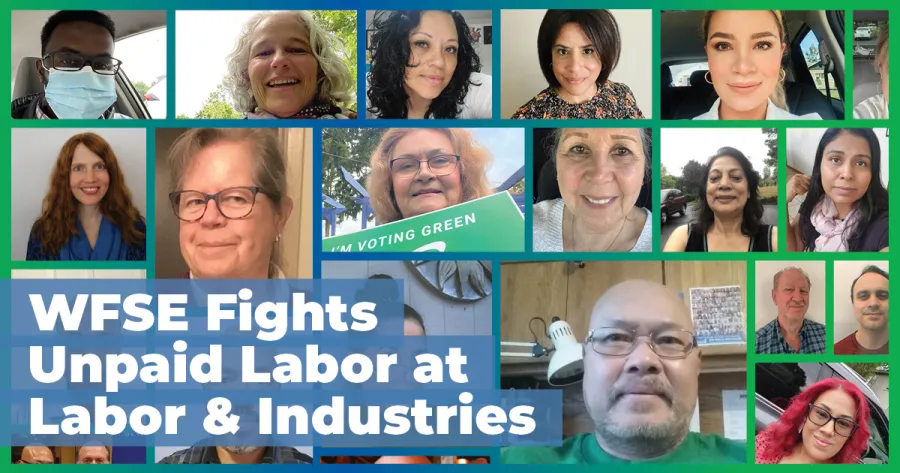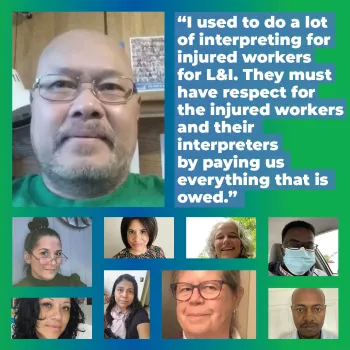WFSE Fights Unpaid Labor at Labor & Industries

Unionized interpreters are owed hundreds of thousands of dollars after interpreting for Washington’s injured workers. L&I still has not made the issue right, and interpreters remain unpaid for their work.
The Department of Labor & Industries’ (L&I) failure to ensure timely payment for contracted interpreters undercuts their mission to help injured workers in Washington. A lawsuit brought by WFSE in May of 2024 seeks the hundreds of thousands of dollars owed to union language access providers who have yet to receive payment for services rendered to injured workers.
According to L&I, “Our state has long strived to make sure workers are paid fairly regardless of who they are.”
Yet interpreters contracting with the agency responsible for preventing wage theft have waited months to be compensated for their work. Without certainty of remuneration, many are reluctant to accept further jobs at L&I.

“I go to a job in good faith; I render services in good faith. And then I'm not paid,” said interpreter and WFSE Local 1671 member Barbara Robertson, a Swahili interpreter.
“I find it utterly ironic that the agency that investigates and litigates wage theft does not guarantee that interpreters will be paid. Frankly, I'm not inclined to interpret again for a client whose insurer hasn't paid me.”
The services the lawsuit seeks payment for were provided to employees of self-insured companies. These employers have opted to pay independently for legally required services for employees who are hurt on the job, but are failing to do so.
Interpreters say L&I’s could put pressure on these companies—yet the issue persists.
Wage theft from interpreters is disrupting vital services for Washingtonians. The ramifications for workplace safety and for medical outcomes are significant.
“I used to do a lot of interpreting for injured workers for L&I, but stopped doing it for over a year now due to the non-payment and clawback issues created by the L&I,” said Quân Tran, WFSE Local 1671 president and Vietnamese interpreter.
“The administrators of this state agency must have respect for the injured workers and their interpreters by paying us all of the money that is owed to

us.”
Many interpreters pursue their line of work because they are passionate about ensuring that anyone can access public services in Washington, regardless of the language they speak.
Language access is especially important in healthcare settings, where the quality of interpretation has a direct impact on health outcomes. Fewer interpreters on the job means needless suffering for Washington’s Limited English Proficient population.
WFSE’s L&I interpreters hope to be able to return to working with the agency soon—and to being fairly compensated when they do.
